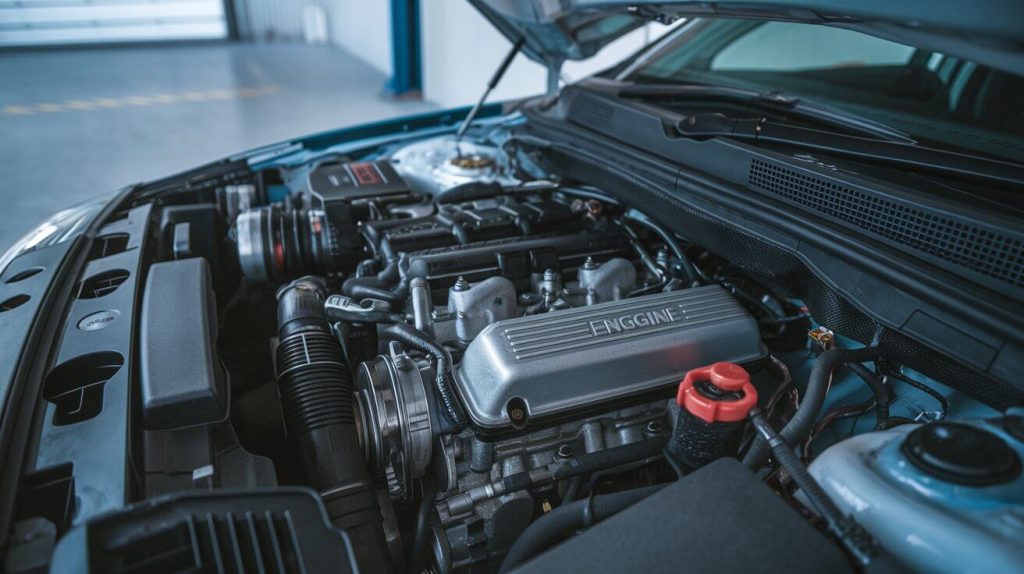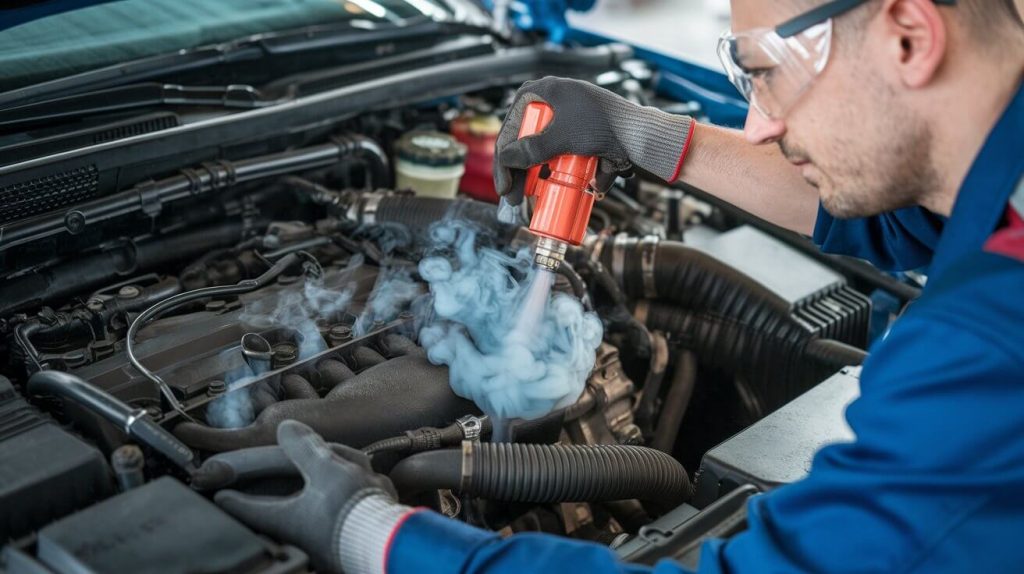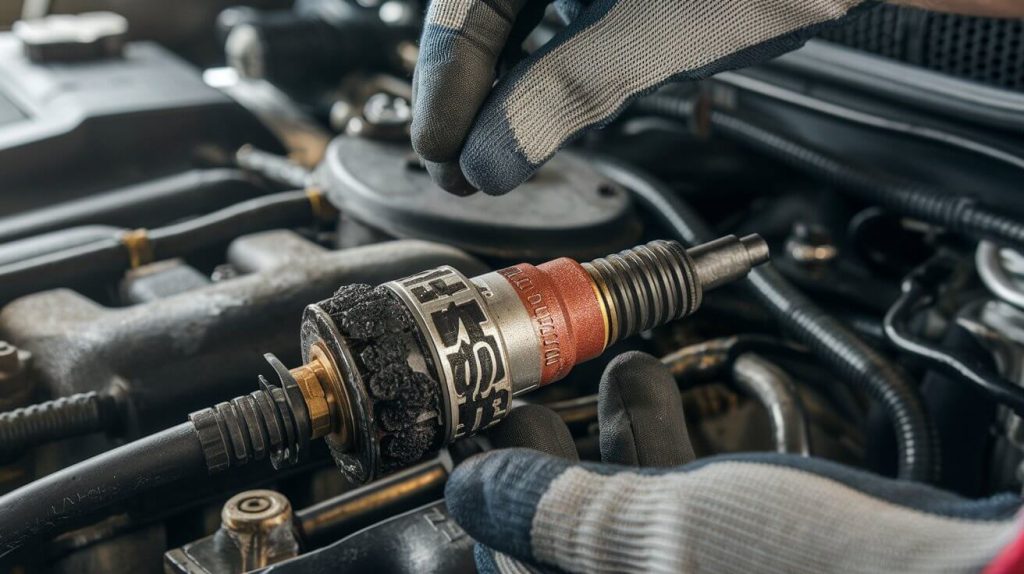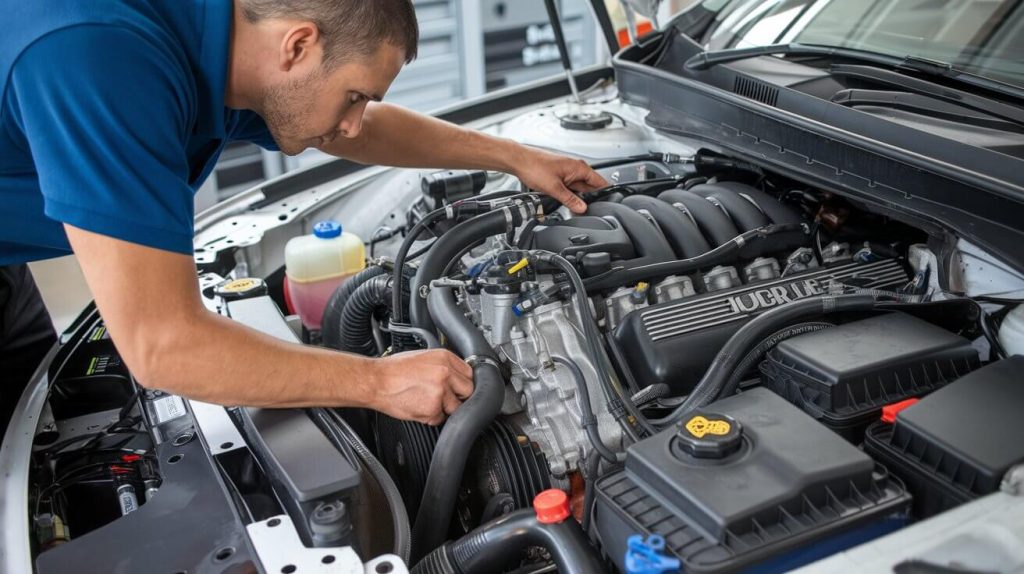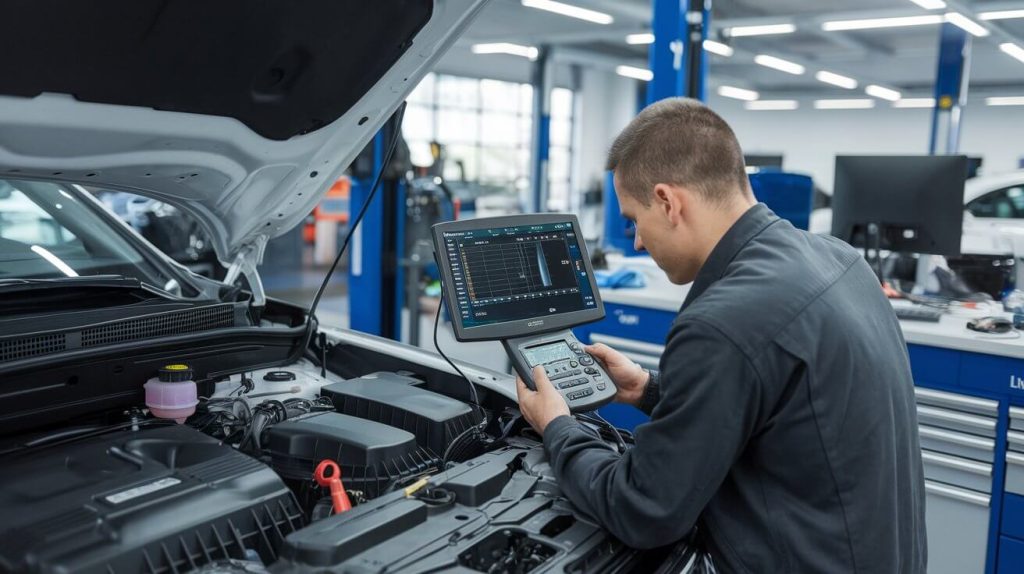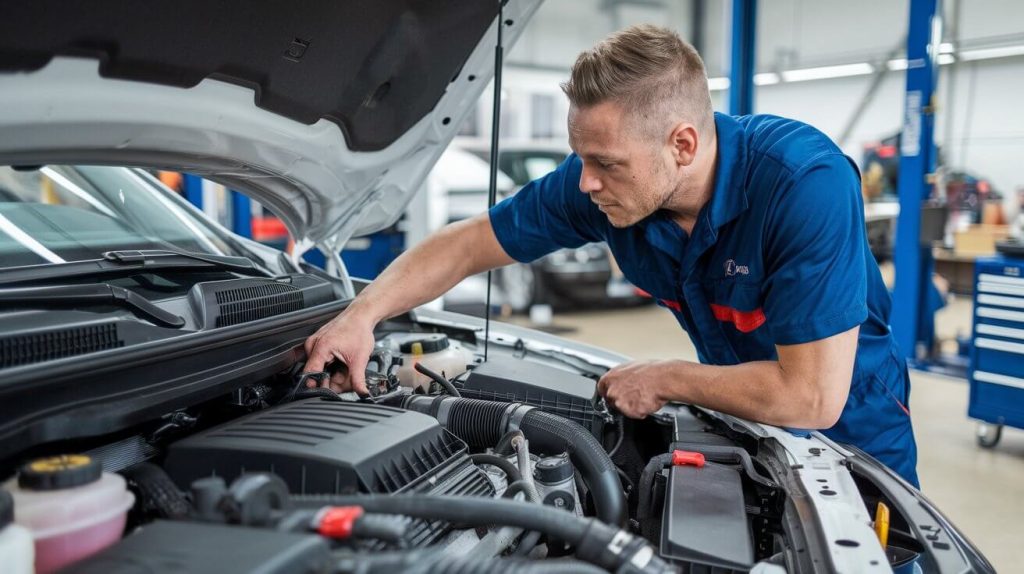If your car shakes when it’s idling, it’s more than just a minor annoyance—it could be a sign of a deeper issue that needs attention. These vibrations might seem small, but they can point to problems that, if left unchecked, could lead to bigger, costlier repairs. Diagnosing why your car is shaking early on is essential to keeping it running smoothly and avoiding any sudden breakdowns. Understanding the causes now can save you a lot of trouble down the road.
What Does It Mean When Your Car Shakes at Idle?
When your car shakes while idling, it usually indicates that something isn’t working as it should. This shaking can be caused by several issues, such as engine misfires, faulty spark plugs, or even clogged fuel injectors. These problems disrupt the smooth running of your engine, leading to vibrations that you feel when the car is at a stop. Addressing these issues early can prevent further damage and keep your vehicle running efficiently. Understanding what causes your car to shake at idle helps you take the right steps to fix it before it turns into a bigger problem.
Why Does My Car Shake When Idle? Causes and Their Solutions
When your car shakes at idle, it can be a sign of various underlying problems. Understanding the causes and their corresponding solutions is crucial to maintaining your vehicle’s performance and avoiding further damage. Below, we explore the most common causes of car shaking at idle and provide detailed solutions to address each issue.
Engine-Related Causes and Fixes
Faulty Spark Plugs
- Cause: Spark plugs are responsible for igniting the air-fuel mixture in the engine’s combustion chamber. Over time, spark plugs can become worn, corroded, or fouled, leading to incomplete combustion. When this happens, the engine may misfire, causing noticeable vibrations when the car is idling.
- Solution: To resolve this issue, inspect the spark plugs regularly and replace them if they show signs of wear or damage. New spark plugs ensure efficient combustion, which helps eliminate engine vibrations and improves overall performance. This simple maintenance task can prevent more serious engine issues down the line.
Dirty or Clogged Fuel Injectors
- Cause: Fuel injectors play a critical role in delivering the precise amount of fuel to the engine for optimal combustion. However, over time, they can become clogged with carbon deposits or debris. This blockage disrupts the smooth flow of fuel, leading to uneven combustion and causing the engine to shake when idling.
- Solution: Cleaning the fuel injectors can restore proper fuel flow and prevent rough idling. If the injectors are severely clogged, replacement may be necessary. Regular use of a fuel system cleaner can help prevent this buildup and keep the injectors functioning efficiently, ensuring a smoother idle. Have a look at Car Modification guide.
Worn Timing Belt
- Cause: The timing belt synchronizes the rotation of the camshaft and crankshaft, ensuring that the engine’s valves open and close at the right times. A worn or damaged timing belt can cause the engine’s timing to be off, leading to misfires, which result in vibrations, especially when the car is idle.
- Solution: Replacing the timing belt according to your vehicle’s maintenance schedule is essential to prevent misfires and maintain smooth engine operation. Ignoring a worn timing belt can lead to severe engine damage, making timely replacement crucial for avoiding costly repairs.
Issues with Oxygen Sensors
- Cause: Oxygen sensors monitor the levels of oxygen in the exhaust gases and send this information to the engine control unit (ECU). If the sensors are faulty, they can provide incorrect data, leading the ECU to adjust the air-fuel mixture improperly. This imbalance can cause the engine to shake, particularly at idle.
- Solution: Replacing faulty oxygen sensors ensures that the ECU receives accurate data, allowing it to maintain the correct air-fuel ratio. This fix not only reduces engine vibrations but also improves fuel efficiency and reduces emissions. New to airflow/fueling? Start with what a Mass Air Flow (MAF) sensor actually does.
Mechanical Causes and Fixes
Damaged Motor Mounts
- Cause: Motor mounts secure the engine to the car’s frame and are designed to absorb vibrations. Over time, these mounts can wear out or break, losing their ability to dampen engine vibrations. This results in noticeable shaking, especially when the car is idling.
- Solution: To address this issue, inspect the motor mounts for signs of wear or damage. Replacing damaged motor mounts will stabilize the engine and significantly reduce the vibrations felt throughout the vehicle. Although this repair can be more complex, it’s essential for maintaining the car’s structural integrity and comfort.
Vacuum Leaks
- Cause: Vacuum hoses control the air-fuel mixture by managing airflow within the engine. If these hoses develop cracks or become disconnected, they can cause a vacuum leak, leading to an improper air-fuel mixture. This imbalance often results in rough idling and engine vibrations.
- Solution: Detecting and repairing vacuum leaks is crucial to restoring the proper air-fuel ratio. Inspect all vacuum hoses for cracks, disconnections, or wear. Replacing or repairing the faulty hoses will smooth out the engine’s idle and eliminate the shaking.
Clogged Air Filter
- Cause: The air filter’s job is to prevent dirt, dust, and debris from entering the engine. When the air filter becomes clogged, it restricts airflow, causing the engine to run rich—meaning there’s too much fuel and not enough air. This imbalance can lead to a rough idle and vibrations.
- Solution: Regularly replacing the air filter is a simple yet effective way to maintain proper airflow and prevent idle vibrations. A clean air filter ensures the engine receives the correct amount of air for efficient combustion, leading to smoother operation and better fuel efficiency.
Faulty Idle Air Control Valve
- Cause: The idle air control valve regulates the engine’s idle speed by controlling the amount of air that bypasses the throttle plate. If this valve becomes clogged with carbon deposits or fails, it can cause irregular idle speeds, leading to engine vibrations.
- Solution: Cleaning or replacing the idle air control valve can help stabilize the idle speed and reduce or eliminate vibrations. This repair is relatively straightforward and can prevent further idle-related issues.
Other Potential Causes and Fixes
Low Engine Oil
- Cause: Engine oil lubricates moving parts within the engine, reducing friction and heat. Low oil levels increase friction, which can lead to overheating and cause the engine to vibrate, particularly at idle.
- Solution: Regularly checking and topping up engine oil is crucial for maintaining smooth engine operation. Keeping the oil at the correct level prevents friction-related vibrations and protects the engine from damage.
Exhaust System Issues
- Cause: The exhaust system, including components like the catalytic converter and muffler, is responsible for managing exhaust gases. If parts of the exhaust system become loose or clogged, they can cause the engine to shake at idle.
- Solution: Inspect the exhaust system for any loose connections or clogs. Repairing or replacing damaged components will restore smooth engine operation and reduce vibrations.
Transmission Problems
- Cause: The transmission is responsible for transferring power from the engine to the wheels. Low transmission fluid or a malfunctioning torque converter can cause the car to vibrate when idle.
- Solution: Checking and maintaining proper transmission fluid levels is essential for smooth operation. If the issue persists, it may be necessary to consult a mechanic for more extensive transmission repairs.
By understanding these common causes of car shaking at idle and addressing them promptly, you can maintain your vehicle’s performance and avoid costly repairs. Regular maintenance and timely repairs are key to keeping your car running smoothly and efficiently.
Is It Safe to Keep Driving If My Car Shakes When Idle?
If your car is shaking when idle, it might seem like a minor issue, but it could signal a more serious problem. Continuing to drive with this issue in UAE’s hot and challenging driving conditions can be risky. The vibrations might cause further damage to the engine or other parts of your car, leading to expensive repairs or even a breakdown on the road.
To ensure your safety and prevent costly damage, it’s important to have the issue checked by a professional as soon as possible. Driving with an engine that’s not running smoothly can affect your car’s performance and reliability, especially in extreme temperatures. If you notice the shaking, it’s best to visit Auto Repair UAE right away to avoid potential risks and ensure your vehicle remains safe and roadworthy.
How We Diagnose Car Shaking at Idle at Auto Repair UAE
At Auto Repair UAE, we understand that car shaking at idle can be both frustrating and concerning. Our approach to diagnosing this issue is thorough and methodical, ensuring that we identify the root cause and recommend the best solution. Here’s how we handle the diagnosis process:
1. Comprehensive Visual and Auditory Inspection
- Engine Bay Inspection: We begin by carefully inspecting the engine bay for any visible signs of trouble. Our technicians look for loose parts, worn belts, disconnected hoses, or fluid leaks. These issues can often cause vibrations when the car is idling, and catching them early can prevent more serious damage.
- Engine Mount Examination: We also check the condition of the engine mounts. If these mounts are damaged or worn, they can’t absorb vibrations properly, causing the engine to shake. By observing the engine while it’s running, we can detect excessive movement that indicates a problem with the mounts.
- Listening for Clues: Our team listens closely to the engine while it’s idling. Unusual noises like knocking, hissing, or clicking can provide important clues about what might be causing the shaking. For example, a knocking noise might point to engine misfires, while hissing could suggest a vacuum leak.
2. Fluid and System Checks
- Engine Oil and Transmission Fluid: We check both the engine oil and transmission fluid levels, as low fluid levels can cause the engine or transmission to run rough, leading to vibrations. If the fluids are low or dirty, we recommend topping them off or replacing them to ensure smooth operation.
- Fuel System Examination: Our technicians inspect the fuel system, paying close attention to the fuel injectors. Clogged injectors can lead to uneven fuel distribution, causing the engine to struggle at idle. We may use a fuel pressure gauge to test the fuel pressure and determine if the injectors need cleaning or replacement.
3. Advanced Diagnostic Tools
- OBD-II Scanning: We use an OBD-II scanner to check for any stored fault codes in your car’s computer system. These codes can pinpoint specific issues, such as engine misfires, faulty oxygen sensors, or ignition problems, that could be causing the shaking. This step allows us to diagnose the problem quickly and accurately.
- Vacuum Leak Detection: If we suspect a vacuum leak, our team uses specialized tools like smoke machines to detect even the smallest leaks in the vacuum hoses. Finding and fixing these leaks is crucial for maintaining the correct air-fuel mixture, which is essential for smooth engine performance.
4. Detailed Component Inspections
- Spark Plug and Ignition System Check: We remove and inspect the spark plugs for signs of wear, carbon buildup, or damage. If the spark plugs are the source of the problem, replacing them can resolve the shaking. We also test the ignition coils to ensure they’re functioning correctly, as faulty coils can lead to engine misfires.
- Timing Belt Inspection: Our technicians check the condition of the timing belt, as a worn or damaged belt can cause the engine to run out of sync, leading to vibrations. If the belt shows signs of wear, we recommend immediate replacement to prevent further issues.
- Exhaust System Review: We inspect the exhaust system for any loose components, cracks, or clogs that could be causing the engine to shake. A damaged exhaust system can significantly affect engine performance, so repairing or replacing faulty parts is key to restoring smooth operation.
5. Professional Recommendations and Repairs
After completing our diagnosis, we provide a detailed report of our findings and recommend the necessary repairs. Whether it’s replacing worn spark plugs, repairing vacuum leaks, or addressing issues with the timing belt or motor mounts, our goal is to ensure your car runs smoothly and safely.
Cost of Car Shaking at Idle Repair in UAE
Fixing a car that shakes when idle can vary in cost, depending on the problem. Here’s a general idea of what you might expect to pay in the UAE:
- Spark Plug Replacement: AED 150 to AED 500.
- Fuel Injector Cleaning or Replacement: AED 300 to AED 2,000.
- Vacuum Leak Repair: AED 200 to AED 1,000.
- Timing Belt Replacement: AED 1,000 to AED 4,000.
- Engine Mount Replacement: AED 800 to AED 2,500.
- Idle Air Control Valve Replacement: AED 400 to AED 1,500.
Note: These are just estimates. Actual costs can vary depending on your vehicle and the specific issue. At Auto Repair UAE, we offer transparent pricing and can provide an accurate quote after inspecting your car. Contact us today to get started.
Preventive Maintenance Tips to Avoid Car Shaking at Idle
Keeping your car in good condition can prevent issues like shaking at idle. Regular maintenance is key to avoiding bigger problems down the road. Here are some simple preventive maintenance tips to help keep your car running smoothly.
- Regular Oil Changes: Changing your engine oil on time is crucial. Fresh oil keeps the engine lubricated, reducing friction and wear. This helps the engine run smoothly, especially when idling. Make sure to check your oil levels regularly and change the oil as recommended by your car’s manufacturer.
- Check and Replace Spark Plugs: Spark plugs play a vital role in engine performance. Over time, they can wear out or get dirty, causing misfires and vibrations. Inspect your spark plugs regularly and replace them if they show signs of wear. This small step can make a big difference in how smoothly your engine runs.
- Maintain the Fuel System: A clean fuel system ensures that your engine gets the proper amount of fuel. Use a fuel system cleaner periodically to prevent clogs in the fuel injectors. This will help avoid rough idling and keep the engine performing well.
- Inspect the Timing Belt: The timing belt controls the timing of your engine’s valves. If it wears out or breaks, it can cause serious engine problems. Regularly inspect the timing belt for any signs of wear and replace it according to the manufacturer’s schedule.
- Keep the Air Filter Clean: A clogged air filter can restrict airflow to the engine, leading to a rough idle and reduced performance. Check your air filter regularly and replace it if it’s dirty. This helps maintain proper air-fuel balance in the engine.
- Check Engine and Transmission Mounts: Engine and transmission mounts hold the engine in place and absorb vibrations. If these mounts are worn out, they can’t do their job properly, causing the engine to shake. Inspect them periodically and replace them if needed.
- Monitor Fluid Levels: Low fluid levels can cause a range of problems, including engine vibrations. Regularly check and top off your engine oil, transmission fluid, and coolant. Keeping these fluids at the right levels helps your car run smoothly.
Following these preventive maintenance tips can help you avoid the stress and expense of dealing with car problems later. Regular care and attention keep your vehicle in top condition, ensuring a smoother, safer driving experience. If you’re ever unsure about what maintenance your car needs, the team at Auto Repair UAE is here to help.
Regular car maintenance not only keeps your vehicle running smoothly but can also help you avoid issues like shaking when idle. Another essential skill every car owner should know is how to jump-start their vehicle in case of a dead battery. For a step-by-step guide on how to do this properly, be sure to read our detailed article How to Jump Start Your Car. This knowledge can come in handy when you need it most and is an important part of keeping your car in good condition, especially in the UAE’s challenging driving conditions.
It’s important to diagnose and fix car shaking issues to keep your vehicle running smoothly and safely. Ignoring these problems can lead to more serious damage and costly repairs. Regular maintenance and early repairs can prevent bigger issues down the road. For expert help, it’s best to consult a professional mechanic. At Auto Repair UAE, we offer reliable car repair services to ensure your vehicle stays in great shape. If your car shakes when idle, contact Auto Repair UAE today to book an appointment and get it fixed quickly.


